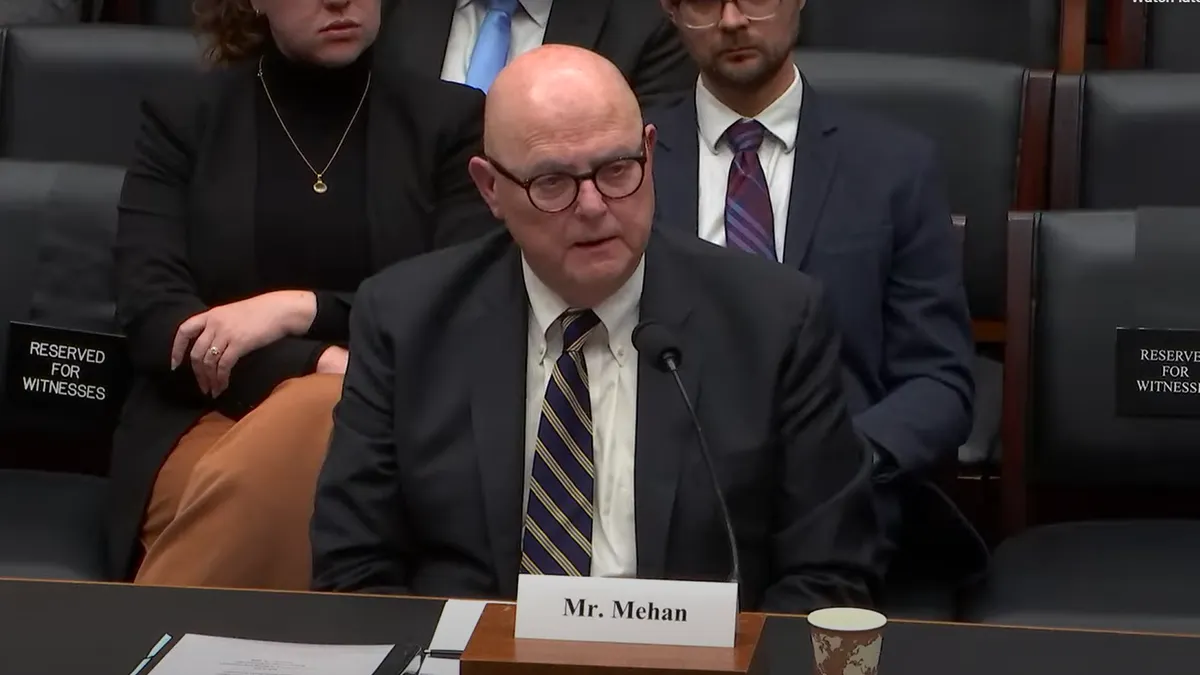It's often hard to quantify just how "disruptive" Rubicon Global's efforts are, but that isn't the case when it comes to looking at an internal reorganization of potentially unprecedented scale currently underway within the Atlanta-based operation.
The recent acquisition of three companies — WestRock's waste services division, Computerized Waste Systems and Charter Waste — has prompted a deep rethink of how Rubicon does business. New executives are coming on this fall, a broad new structure is being implemented by January, and 44 employees were laid off yesterday afternoon.
Aside from saying this represents "nearly 10%" of the company's combined workforce, including acquisitions, no further details were provided about where these employees came from or what their roles were. The reasoning was largely ascribed to redundancies and the elimination of certain titles. All employees have been given severance packages with compensation "above and beyond what is standard practice," COBRA insurance coverage through the severance period, and access to career counseling services.
"This is the part that nobody likes," said CEO Nate Morris, "but to be the kind of company you want to be, and when you're growing as fast as we grow, this is just part of that process. I think that we're getting better day by day and the future for us couldn't be brighter."
This broader restructuring will mean many things, including hiring for new positions, but the company aims to portray it as a customer-focused play above all else.
"Our structure is designed around really magnifying that experience for the customer and creating that intimate connectivity with them so that we become their strategic partner. Not their waste hauler, their strategic partner," said President Kim Rumph in her first interview since joining the company. "I think that is going to feel dramatically different for them as we move into the new structure, and integrate the company and bring our tech fully to life."
To accomplish this, Rumph has devised a strategy that will help bring a "very surgical focus" to Rubicon's small and medium business line by breaking it down into three geographic regions across North America. In addition to more interaction with customers and hauling partners, Rumph described this strategy as a way to "penetrate the United States very quickly" in areas that haven't been targeted already. "We're going to be moving harder and faster into new cities across the country," she said.
Rubicon will also have a team working on national sales and account management, with a focus on deepening relationships around sustainability solutions, as well as an "operational excellence" team working horizontally throughout the company. The ongoing "smart cities" and local government work will also continue under Senior Vice President Michael Allegretti.
Rumph assumed this role in July after serving on the company's board for three years, and has been leading the overhaul process with what Morris described as a "very specific roadmap." Prior to this, Rumph was president of CHEP North America (a brand of Brambles Limited) and comes from a background in environmental engineering. Morris said he's known her for "many years as a friend" and that she's been "a great advisor to me and and a mentor in many ways."
Rumph also used to work at GE, among multiple other roles, which is where she met Rubicon's new CFO Dave Perlman.
Perlman, the outgoing CFO of Phobio and previously CFO of a Brambles business unit, will assume the title on Oct. 15. His prior working relationship with Rumph was described as an asset in getting started quickly.
"He's been a great partner to me over the years and we have worked very closely together," said Rumph. "We both bring a very strong operational mindset and discipline from our days at GE."
Perlman will also be working with board member Brent Callinicos, currently COO/CFO of Hyperloop One and formerly of Uber, in what Morris described as a mentorship role.
Rubicon’s outgoing CFO Chad Gold, who started in June 2017, left in August to become CFO at SalesLoft and continues to serve on the company's advisory board. Former president Elaine Richards, who started in Dec. 2017, left this summer "to pursue other business opportunities" and continues to serve in an advisory capacity.
Those keeping score at home may recall that this isn't the first wave of executive turnover at the company. For example, one CFO who started in 2015 only lasted about five months, and other names have come and gone.
Yet what some may view as turmoil, Rubicon sees as the natural evolutionary cycle of a technology company. Morris described staying somewhere for two years as "several lifetimes" in the tech world and portrayed it in broader terms.
"We're radically growing, at a much faster rate than probably the folks in the industry that are making those critiques. They're growing at 1-3% through price increase and through acquisition themselves," he said. "So when we have an organic growth rate at the rate we do, that's to be expected."
"Our need for different leaders is changing and it's changing at a much faster pace than the traditional waste and recycling industry," added Allegretti, formerly of Uber. "I think what's helpful is to cast a wide net and look at Silicon Valley and other tech companies to understand the rate of change and the type of change. To be honest, we're just trying to keep up."
When asked where all of this hard-charging activity would lead to in 2019, and how that might eventually be manifested into a visible change within the industry, Rubicon's senior leadership was characteristically cryptic.
"We'll we're certainly going to keep the industry guessing," said Morris. "Just when they think they have us figured out, I'm sure we're going to drop some new things that are going to be fascinating..."
This article has been updated to include details on Chad Gold's new job, specify Elaine Richards' advisory role and clarify Kim Rumph's previous title.


















